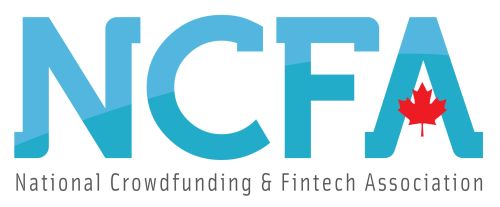Interview Begins
”The successful implementation of Open Banking will be significant for the eventual implementation of Open Finance, which is the next step beyond Open Banking, enabling access and sharing of consumer data to even more financial products and services — not just banking.”
— Interview with Michelle Beyo, CEO of Finavator & Interim President of Open Finance Network of Canada (OFNC)
Mahi Sall: Tell us about yourself and OFNC (formerly OBIC)
Michelle Beyo: Michelle Beyo CEO of Finavator, Interim President of Open Finance Network of Canada, and Advisor of NCFA Canada amongst others
Open Finance Network of Canada (OFNC) is a not-for-profit organization whose mission is to bring together all stakeholders from financial services to advocate for consumer data rights and educate Canadians and SMEs on the benefits of Open Finance. We are a diverse group of Board Members and a neutral partner for the financial services industry Canada, helping to educate on the benefits of Open Banking and Open Finance. As we believe they can be a force for good for Canadian consumers and SMEs.
“The balance of power in the financial industry must shift. Progressive and inclusive innovation requires banking providers to welcome competition by partnering with fintechs and other third-party providers.”
Mahi Sall: What does Open Banking mean to banks and fintechs, and how does it affect the relationship between the two?
Michelle Beyo: A healthy and competitive financial services sector is vital to Canada’s economic well-being. Our current banking culture predominantly favours Canada’s largest FIs. In a recent report by the World Bank Group, Canada is ranked only 23rd in the world for ease of doing business. The report considered different aspects of the participating countries’ business environment including their regulatory environment. Within this culture, the concentration of asset size held by a handful of large retail banks has increased more than almost any other developed country in the world. This has resulted in: A dominant market share that allows a small group to determine the pace and direction of financial innovation in the country. An uneven playing field that flourishes to the exclusion of smaller credit unions and FIs, challenger banks and fintech firms.
To truly meet the changing needs of Canadian consumers and small businesses in a digital age, this balance of power in the financial industry must shift. Progressive and inclusive innovation requires banking providers to welcome competition by partnering with fintechs and other third-party providers who can help them excel in today’s digitally-driven world. Not only could this positively shift the equilibrium in the financial services industry, but it could also redefine the very nature of relationships between FIs and emerging partners in consumer-centric innovation.
Partnerships between Canadian FIs and FinTechs have already begun across the ecosystem, with large financial institutions and notable FinTechs partnering to offer Canadians new products and services. As other market players such as Tech Giants (Ex. Apple, Google, etc.) and Challenger Banks (Ex. PC Financial) begin to offer Canadians financial services and products, partnerships will play a critical role for FIs and FinTechs to maintain their market share and relationships with Canadian consumers. FinTechs will leverage large FI’s consumer base and trust while FI’s will benefit from FinTech’s agility as well as digital-first solutions.
Mahi Sall: What do you think are some of the quick wins in terms of Open Banking use cases that banks and fintechs in Canada should prioritize rolling out?
Michelle Beyo: Open Banking will create a number of opportunities for exciting and innovative products and services for all Canadians. Specifically, hyper personalized products and services, increased access to consumer spending insights, the acceleration of credit applications, and account aggregation are just a few of the use cases that Open Banking in Canada will unlock. Some of the best opportunities include the creation of personalized financial products and services that will target the 5 million underbanked and 1 million unbanked Canadians in which today’s financial products and services do not address their current needs.
Open Banking will help those who are underbanked or unbanked have greater access and usage to financial products and services that they need as well as improve the quality and introduce innovative solutions to all consumers. Open Banking could deliver tools that would support Canadians in improving their financial outcomes by enabling them to use their information to secure better rates or products, manage their small businesses more easily, and access new tools that would help improve their financial health. It has the potential to be particularly beneficial to small business owners, consumers facing challenges in managing their finances, and those with limited or non-traditional credit histories.
Mahi Sall: Chief among the factors affecting the take-off of Open Banking is low adoption by consumers. What could Canada do differently in order to pre-empt this risk?
Michelle Beyo: In order for Open Banking to be successful in Canada, consumer awareness and education will need to be at the forefront. For most stakeholders across the Canadian ecosystem, the benefits and potential use cases for Open Banking are quite familiar. Therefore it will be the responsibility of all players, including the Canadian government, Banks, FinTechs and others, to help consumers and small businesses to navigate the new world that Open Banking will usher in. With the opportunity and ability to learn from other first to market players such as the UK and Australia, the Canadian government, FIs, and FinTechs need to create tools and other resources to help Canadians become financially literate and feel empowered about their money.
Mahi Sall: Any final thoughts?
Michelle Beyo: With the release of the Open Banking recommendations report by the Government of Canada’s Expert Advisory Panel on Consumer Directed Finance and the selection of the Open Banking Lead in March 2022, the Canadian ecosystem has taken steps towards implementing its Open Banking regime. As the implementation phases advance, OFNC looks forward to collaborating with the Open Banking Lead and their team, along with the rest of the Canadian ecosystem, to help create an Open Banking framework that is inclusive and that will allow Canadian Consumers as well as SMEs to control their data while accessing competitive financial services. The successful implementation of Open Banking will be significant for the eventual implementation of Open Finance, which is the next step beyond Open Banking, enabling access and sharing of consumer data to even more financial products and services — not just banking. Building on Open Banking, Open Finance is about simplifying sharing of more layers of data to enable new financial applications. Allowing people to connect information from various services provides opportunities for more holistic and personalized offerings. The time is now for Canada to leverage this momentum to drive innovation and expand financial inclusion.
# # #
Links you may be interested in:
Mahi Sall is an Ambassador of the National Crowdfunding & Fintech Association of Canada “NCFA”, and an Expert on Fintech-Bank Partnerships. He is based in Berlin, Germany.
 The National Crowdfunding & Fintech Association (NCFA Canada) is a financial innovation ecosystem that provides education, market intelligence, industry stewardship, networking and funding opportunities and services to thousands of community members and works closely with industry, government, partners and affiliates to create a vibrant and innovative fintech and funding industry in Canada. Decentralized and distributed, NCFA is engaged with global stakeholders and helps incubate projects and investment in fintech, alternative finance, crowdfunding, peer-to-peer finance, payments, digital assets and tokens, blockchain, cryptocurrency, regtech, and insurtech sectors. Join Canada’s Fintech & Funding Community today FREE! Or become a contributing member and get perks. For more information, please visit: www.ncfacanada.org
The National Crowdfunding & Fintech Association (NCFA Canada) is a financial innovation ecosystem that provides education, market intelligence, industry stewardship, networking and funding opportunities and services to thousands of community members and works closely with industry, government, partners and affiliates to create a vibrant and innovative fintech and funding industry in Canada. Decentralized and distributed, NCFA is engaged with global stakeholders and helps incubate projects and investment in fintech, alternative finance, crowdfunding, peer-to-peer finance, payments, digital assets and tokens, blockchain, cryptocurrency, regtech, and insurtech sectors. Join Canada’s Fintech & Funding Community today FREE! Or become a contributing member and get perks. For more information, please visit: www.ncfacanada.org
- SEO Powered Content & PR Distribution. Get Amplified Today.
- Platoblockchain. Web3 Metaverse Intelligence. Knowledge Amplified. Access Here.
- Source: https://ncfacanada.org/canadas-open-banking-journey-interview-with-michelle-beyo-ceo-of-finavator-interim-president-of-open-finance-network-of-canada-ofnc/




